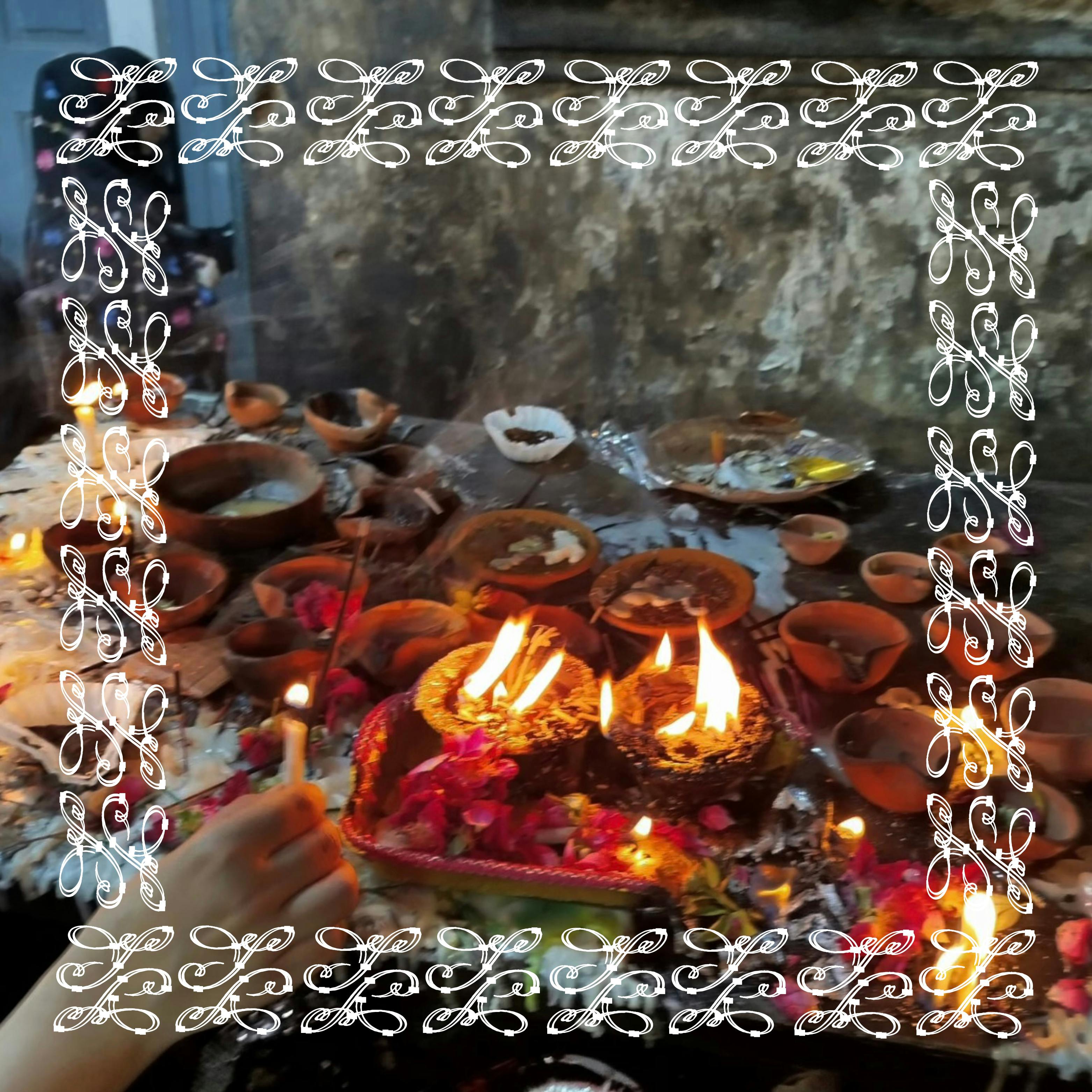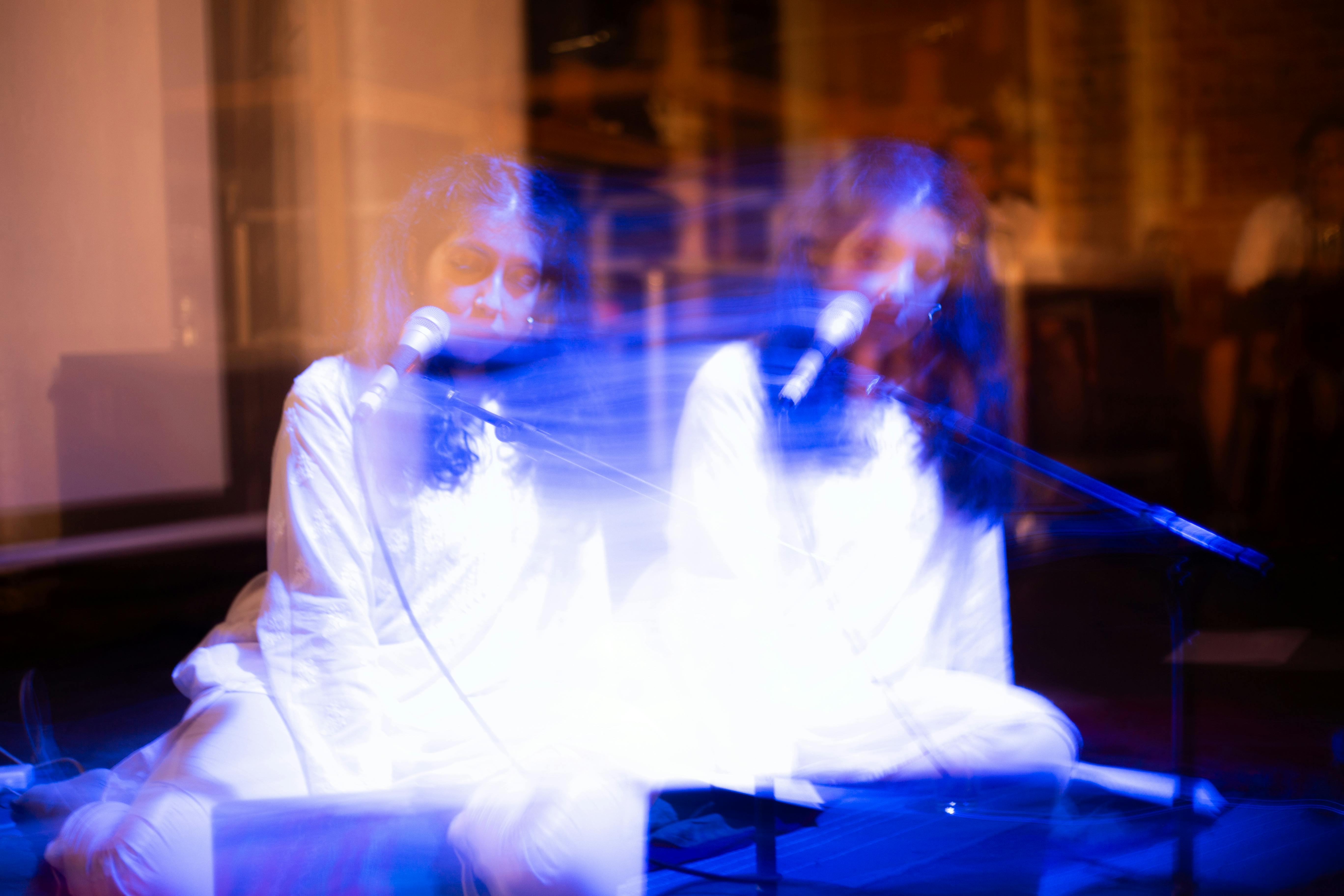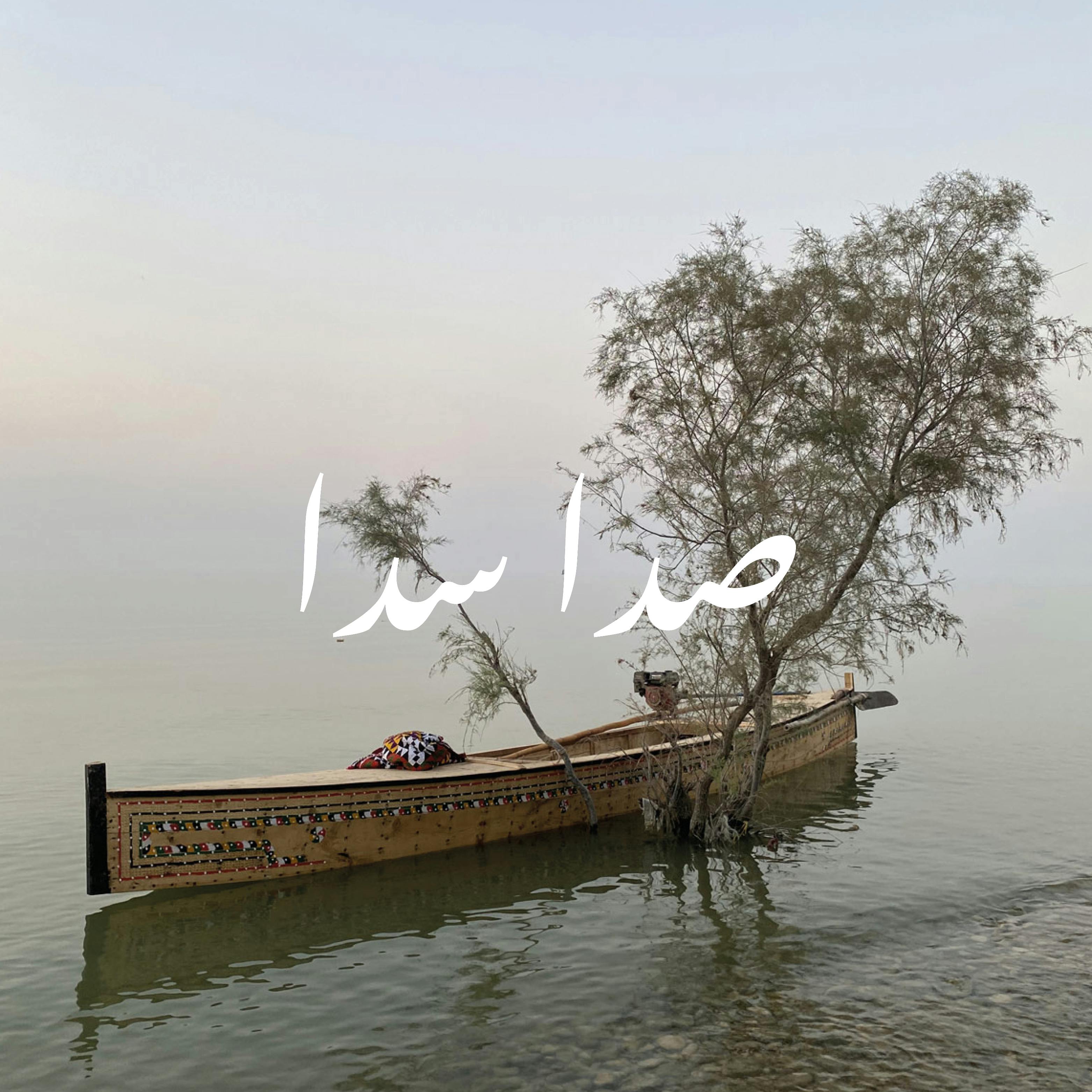Sada Sada
24 januari–23 mars 2025

Opening: January 24th from 18:00 - 22:00
Zahra Malkani is a multidisciplinary artist from Karachi, Pakistan. Collaboration, research and pedagogy are at the heart of her practice, exploring sound, dissent and devotion against militarism and infrastructural violence. Working across multiple media - including text, video and sound - she explores the politics of development, displacement and dispossession through the lens of dissident ecological knowledges and traditions of environmental resistance. She is a co-founder with Shahana Rajani of Karachi LaJamia, an experimental project exploring radical pedagogies in relation to struggles around land and water in the city.

Sada Sada is a sound installation composed of field recordings of mourning and maatam, lullabies and laments. These recordings emerge from research in spaces along coastal Pakistan plagued by environmental violence and militarised conflict, reeling from floods, heatwaves and dispossession. Here, sound becomes the medium through which an ancient inheritance of grief is interlaced with the crises of this particular historical moment - climate grief, language grief, grief of displacement, grief against erasure. With a focus on the collective nature of our crises, of these sonic traditions, and of our grief, the sound installation will also act as a gathering space and a grieving space over the course of the exhibition.
In urdu the word for sound, call or cry is Sada صدا , from the arabic root word sadain: echo. All sound is only echo. When taken from the sanskrit root, Sada سدا also means eternal. The echo is how sound moves across eternity, binding bodies across time. The echo is how sound becomes collective.
In Sada Sada, grief is not seen as a weight or a burden; for the Sufis, grief is the most advanced lesson of love and the deepest form of worship and devotion. Grief is an ecstatic practice of rapture and enchantment. If sound is the central medium for this grief, and repetition the mode, the sufi shrine is its thikana, the central site for its reverberations.
Through the sound installation, Malkani brings the shrine to Konsthall C - using speakers not only as mediums for sound but as sacralised technologies for collectivity and communion. The speakers act as surfaces for diyas, or votive candles, common fixtures in shrines across South Asia, and places of worship across the world. In South Asia, shrines are essentially spaces for those in mourning, sites that transgress the boundaries between life and death. In that context, shrines are also closely political spaces and central sites for the emergence, expansion and intermingling of working class and marginalized collectivities, both new and timeless.
Sada Sada is an attempt at rapture, remembrance, and collectivity.

Public Program:
Performance: سوگواری /sūgvāri/ by Bahar Borna Faraz
Date: 22 February at 14:00 (until evening)
Place: Konsthall C
Listening Session and Discussion with Zahra Malkani and Syma Tariq
Date: March 8th, from 17:00 - 21:00 (Iftar will be served)
Place: Konsthall C
Lecture with Shahram Khosravi
Time: March 15, from 18:00 - 20:00
Place: Konsthall C